Chappelle's Story
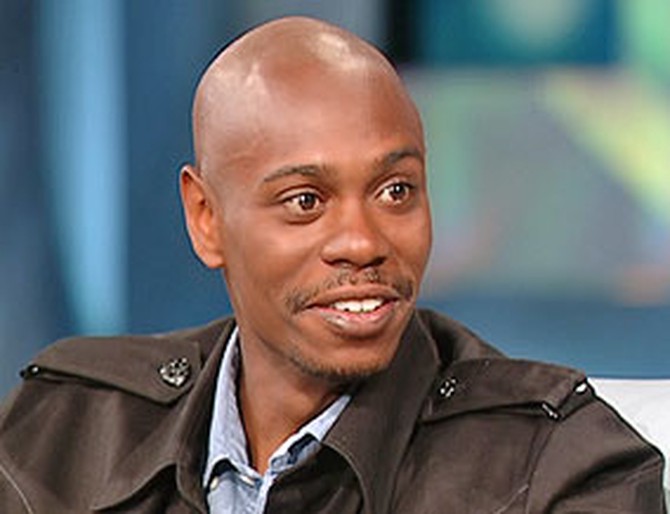
At 32, Dave Chappelle has been a professional stand-up comedian and an actor for nearly 20 years. The debut of his sketch comedy show on Comedy Central in 2003 made him a household name. After just two seasons on the air, Chappelle's Show was considered one of the funniest shows on TV.
Dave's trademark humor—outrageous, politically incorrect explorations of popular culture, race, sex, drugs and fame—infused every skit. His fans love quoting his lines, especially his impersonation of funk music impresario Rick James.
Despite the show's controversial subjects, it became the highest rated program on Comedy Central and earned three Emmy nominations. When the first season was released on DVD, it became the best-selling TV show in DVD history!
Then, in April 2005, a year after signing a two-year, $50 million contract to continue Chappelle's Show, Dave abruptly walked off the set and...disappeared. Almost no one, including his wife and kids, knew where he went.
Dave's trademark humor—outrageous, politically incorrect explorations of popular culture, race, sex, drugs and fame—infused every skit. His fans love quoting his lines, especially his impersonation of funk music impresario Rick James.
Despite the show's controversial subjects, it became the highest rated program on Comedy Central and earned three Emmy nominations. When the first season was released on DVD, it became the best-selling TV show in DVD history!
Then, in April 2005, a year after signing a two-year, $50 million contract to continue Chappelle's Show, Dave abruptly walked off the set and...disappeared. Almost no one, including his wife and kids, knew where he went.
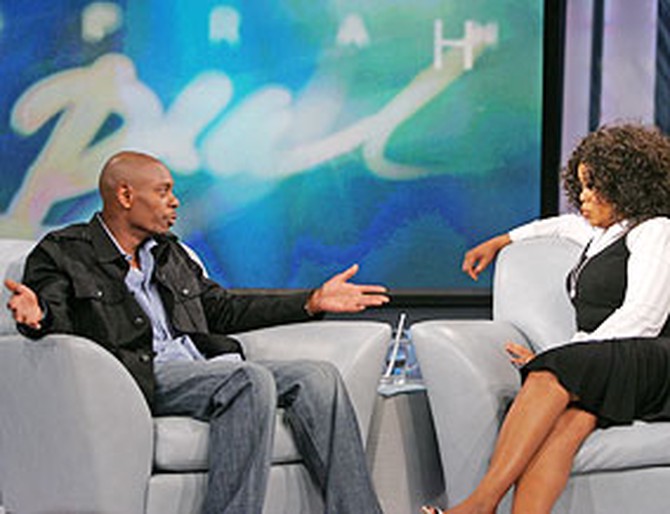
Just as Chappelle's Show seemed to be peaking—it had achieved critical praise and devoted fans in a short stretch of time—the wheels came off when Dave disappeared. Rumors flew about what had happened to Dave—even making the pages of publications like Time and Newsweek.
Some people said Dave had gone crazy or was on drugs. Some media reported Dave was locked in a mental institution.
In reality, Dave says, he went to South Africa to slow down. How could he have just left like that? "One, I needed a break," he says. "Two, we have family and friends down there. I felt like it was a place where I could really reflect... And here's the other thing: I was only gone for two weeks! They made it sound like it was so mysterious."
Some people said Dave had gone crazy or was on drugs. Some media reported Dave was locked in a mental institution.
In reality, Dave says, he went to South Africa to slow down. How could he have just left like that? "One, I needed a break," he says. "Two, we have family and friends down there. I felt like it was a place where I could really reflect... And here's the other thing: I was only gone for two weeks! They made it sound like it was so mysterious."
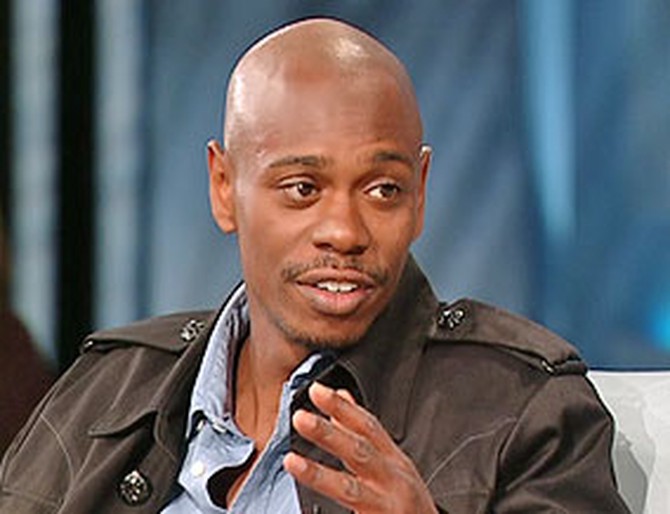
Dave explains that when Chappelle's Show first started, he had creative control. Money was never an issue, Dave says, because the show did not appear to be lucrative. "It wasn't like Comedy Central was a hot place to be when I showed up there," Dave says.
Dave says his troubles began in the middle of the first season, during a contract renegotiation. "Through a series of events and a little pressure, I ended up settling for way less than what I wanted. Then in season two, the DVD is released and it sets all these incredible records. Now suddenly this is a bigger moneymaker than they thought. It's already making money and it's a whole new revenue stream. And [now], my contract's up."
Dave says his troubles began in the middle of the first season, during a contract renegotiation. "Through a series of events and a little pressure, I ended up settling for way less than what I wanted. Then in season two, the DVD is released and it sets all these incredible records. Now suddenly this is a bigger moneymaker than they thought. It's already making money and it's a whole new revenue stream. And [now], my contract's up."
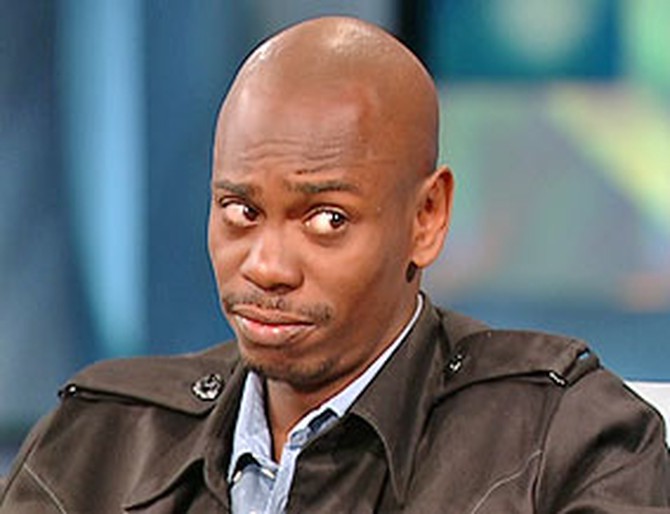
The Chappelle's Show: Season 2 Uncensored DVD broke sales records, selling about 500,000 copies in one day and 1.2 million in a week. In addition, the new season of Chappelle's Show was getting higher ratings every week. Dave says he was suddenly "the toast of the town."
As the second season began to wrap up, Dave says he was often asked about his plans for the show. "They didn't really put any pressure on me," he says, but I could see within their structure things were changing.
As the second season began to wrap up, Dave says he was often asked about his plans for the show. "They didn't really put any pressure on me," he says, but I could see within their structure things were changing.
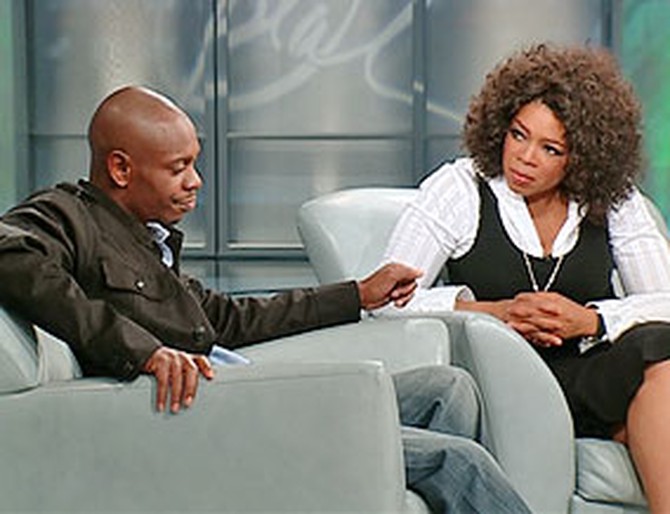
During his third season, Dave began questioning his work on the show. From the very first episode, Dave's sketches sparked controversy. But, over time, he says some of his sketches started to make him feel "socially irresponsible."
One particular sketch still disturbs Dave today. The skit was about a pixie (played by Dave) who appeared in black face, which Dave describes as the "visual personification of the n-word."
"There was a good-spirited intention behind it," Dave says. "So then when I'm on the set, and we're finally taping the sketch, somebody on the set [who] was white laughed in such a way—I know the difference of people laughing with me and people laughing at me—and it was the first time I had ever gotten a laugh that I was uncomfortable with. Not just uncomfortable, but like, should I fire this person?"
After this incident, Dave began thinking about the message he was sending to millions of viewers. Dave says some people understood exactly what he was trying to say with his racially charged comedy...while others got the wrong idea.
"That concerned me," he says. "I don't want black people to be disappointed in me for putting that [message] out there. ... It's a complete moral dilemma."
One particular sketch still disturbs Dave today. The skit was about a pixie (played by Dave) who appeared in black face, which Dave describes as the "visual personification of the n-word."
"There was a good-spirited intention behind it," Dave says. "So then when I'm on the set, and we're finally taping the sketch, somebody on the set [who] was white laughed in such a way—I know the difference of people laughing with me and people laughing at me—and it was the first time I had ever gotten a laugh that I was uncomfortable with. Not just uncomfortable, but like, should I fire this person?"
After this incident, Dave began thinking about the message he was sending to millions of viewers. Dave says some people understood exactly what he was trying to say with his racially charged comedy...while others got the wrong idea.
"That concerned me," he says. "I don't want black people to be disappointed in me for putting that [message] out there. ... It's a complete moral dilemma."
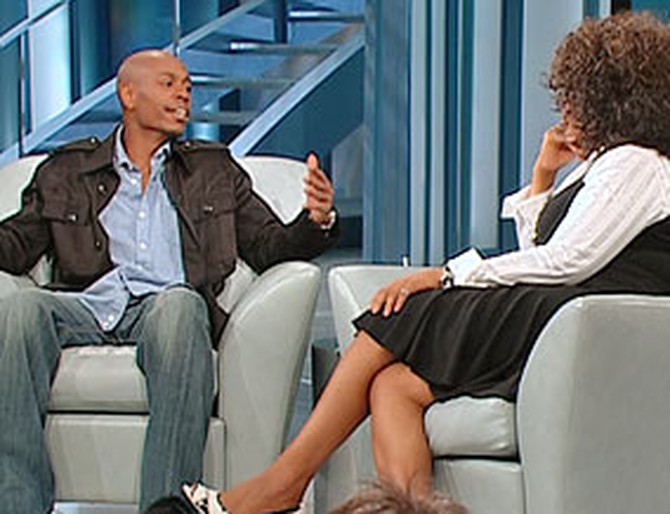
Tension on the Chappelle's Show set went from bad to worse during the third season, Dave says. After filming the pixie sketch, Dave says he considered walking away from his hit TV show.
Rumors about problems on the set began circulating in the media. One story said Dave had pneumonia, while another reported that he was suffering from writer's block. Dave says those stories were fabricated.
Then Dave decided to disappear. "I knew I was going to leave," he says. "The only reason I didn't leave sooner was because I knew they were going to say, 'He couldn't finish his show.' So I got ahead of schedule, and I bounced."
Before Dave boarded a flight to Africa, he called his brother to give him a list of people to call once he was gone.
He admits that not telling his wife before he left was wrong. "It wasn't that I didn't tell my wife," he explains. "It was [more] like, 'I'm not telling her until after I'm gone.' Which was a mistake, but it wasn't a crazy mistake."
Rumors about problems on the set began circulating in the media. One story said Dave had pneumonia, while another reported that he was suffering from writer's block. Dave says those stories were fabricated.
Then Dave decided to disappear. "I knew I was going to leave," he says. "The only reason I didn't leave sooner was because I knew they were going to say, 'He couldn't finish his show.' So I got ahead of schedule, and I bounced."
Before Dave boarded a flight to Africa, he called his brother to give him a list of people to call once he was gone.
He admits that not telling his wife before he left was wrong. "It wasn't that I didn't tell my wife," he explains. "It was [more] like, 'I'm not telling her until after I'm gone.' Which was a mistake, but it wasn't a crazy mistake."
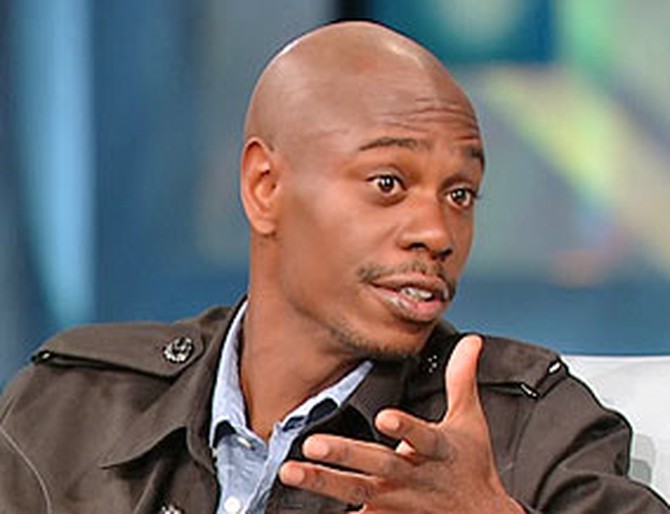
Dave left his show...and the country. Despite the rumors, he says his sudden departure had nothing to do with not wanting the money or the fame. "I love being famous—it's phenomenal," Dave says. Instead, Dave says that he was leaving "circumstances that were coming with the new-found plateau" of fame.
"I've been in show business since I was 14, and I've heard the stories of what happens" to performers when they achieve great wealth and fame, Dave says. They start saying things like, "It's the people around me. Everyone's changed. I'm the same, but everything around me is changing."
Was he crazy? "No, not exactly," he says. "I wasn't crazy, but it's incredibly stressful. And I felt like in a lot of instances I was deliberately being put through stress because, when you're a guy that generates money, people have a vested interest in controlling you. And I feel like the people that were trying to control me were putting me through stressful situations."
"The way the people around you position themselves around you to get in your pockets and in your mind is infuriating to me," Dave says.
"I've been in show business since I was 14, and I've heard the stories of what happens" to performers when they achieve great wealth and fame, Dave says. They start saying things like, "It's the people around me. Everyone's changed. I'm the same, but everything around me is changing."
Was he crazy? "No, not exactly," he says. "I wasn't crazy, but it's incredibly stressful. And I felt like in a lot of instances I was deliberately being put through stress because, when you're a guy that generates money, people have a vested interest in controlling you. And I feel like the people that were trying to control me were putting me through stressful situations."
"The way the people around you position themselves around you to get in your pockets and in your mind is infuriating to me," Dave says.
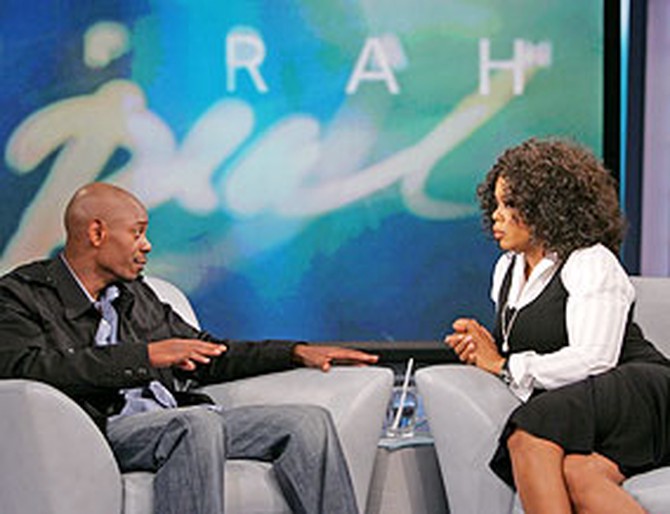
Dave says he retreated to Africa because it was a place where he could really reflect on his life. During his two-week stay, he came to many conclusions about himself and his involvement with Chappelle's Show.
"I felt really guilty about being asleep at the wheel," Dave remembers. "I felt guilty about it because I forgot the hostility of the environment of show business. ... There's some quote that someone told me that says, 'Success takes you where character cannot sustain you.'"
"I felt really guilty about being asleep at the wheel," Dave remembers. "I felt guilty about it because I forgot the hostility of the environment of show business. ... There's some quote that someone told me that says, 'Success takes you where character cannot sustain you.'"
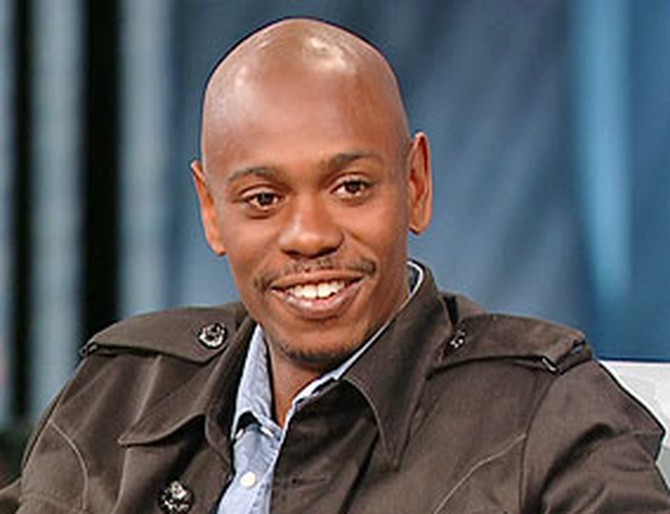
Oprah asks Dave the $50 million question...will he ever return to Chappelle's Show?
Like a pendulum, Dave says his attitude has swung back and forth between "I'll never go back" to "I can't walk away from $50 million" over the last few months. Dave says he thinks he's finally come to a decision.
"Here's a scenario that I could come back to the show—I can't believe I'm saying this—but this is what I want to do," he says. "I do want to do my show again provided, one, I can make the proper work environment. But more importantly, I want to give. ... I don't want the money. I don't want the drama. I just want to do my show. I want to have fun again."
Ideally, Dave would like to work out a deal that guarantees that half the revenue from his DVD sales would go to help people in need. "How awesome would that be if people buy the DVD, they do it for charity?" he asks. "So even if I say something socially irresponsible, [some proceeds would go] to a socially responsible cause."
Now, Dave thinks it's time to get back on set and finish what he started. "We're going to get the proper foundations. We're going to figure it out. I get a little heated when I talk about the past. But I wanted to be clear—I'm not mad at anybody—not anymore."
Like a pendulum, Dave says his attitude has swung back and forth between "I'll never go back" to "I can't walk away from $50 million" over the last few months. Dave says he thinks he's finally come to a decision.
"Here's a scenario that I could come back to the show—I can't believe I'm saying this—but this is what I want to do," he says. "I do want to do my show again provided, one, I can make the proper work environment. But more importantly, I want to give. ... I don't want the money. I don't want the drama. I just want to do my show. I want to have fun again."
Ideally, Dave would like to work out a deal that guarantees that half the revenue from his DVD sales would go to help people in need. "How awesome would that be if people buy the DVD, they do it for charity?" he asks. "So even if I say something socially irresponsible, [some proceeds would go] to a socially responsible cause."
Now, Dave thinks it's time to get back on set and finish what he started. "We're going to get the proper foundations. We're going to figure it out. I get a little heated when I talk about the past. But I wanted to be clear—I'm not mad at anybody—not anymore."
Published 02/03/2006

